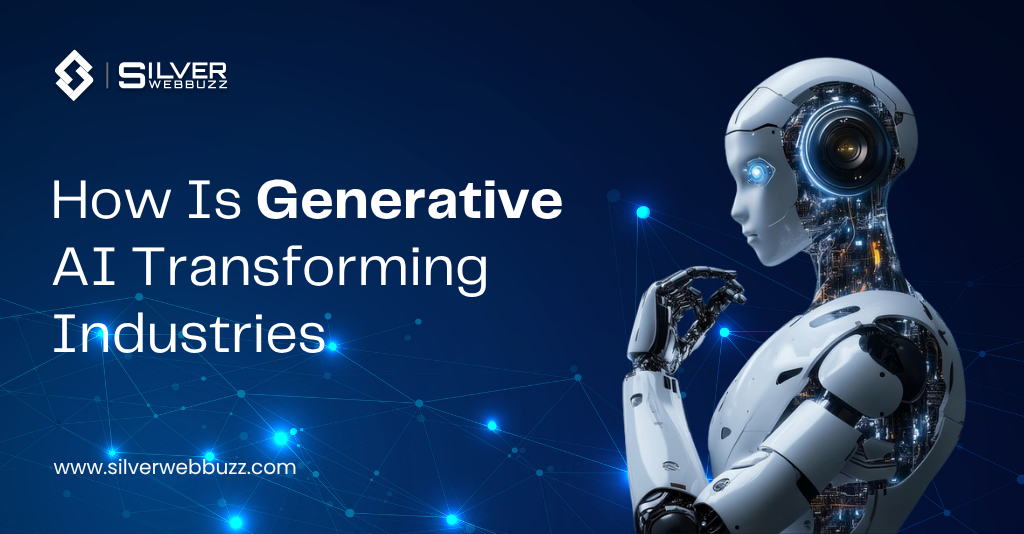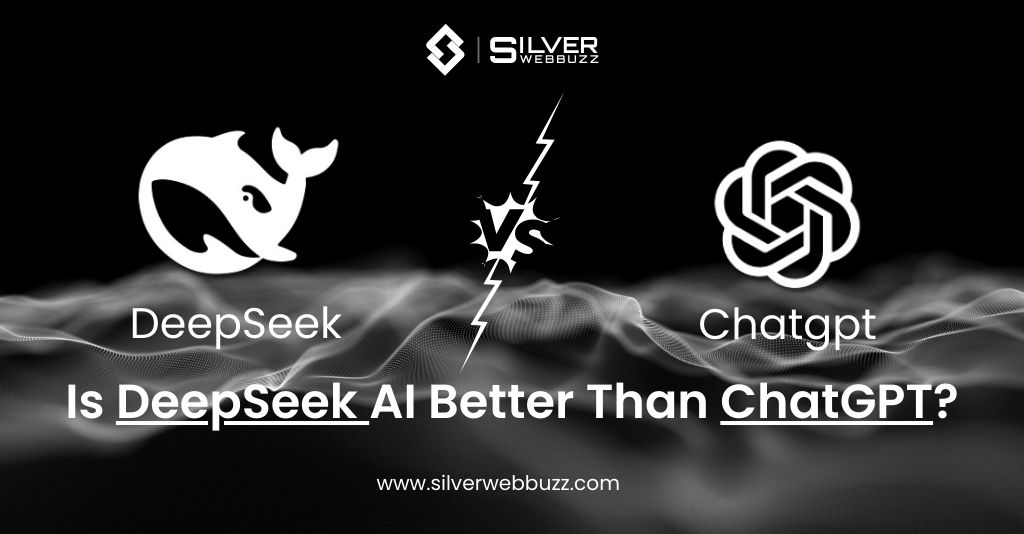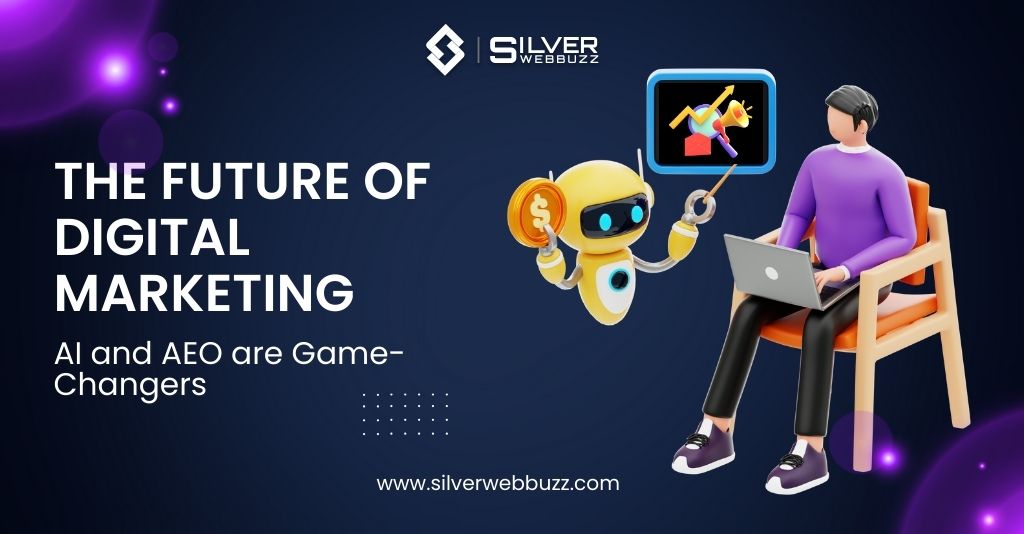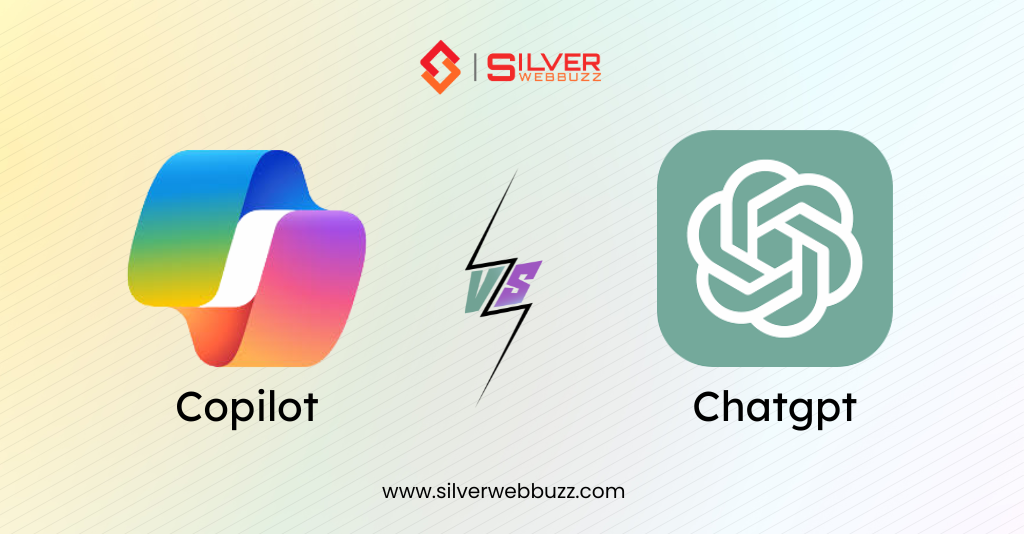What is Generative AI and Why It Matters in 2025

Generative AI refers to advanced artificial intelligence systems capable of creating new content, solutions, or ideas that resemble human creativity. Unlike traditional AI, which focuses on analysing and predicting based on existing data, Generative AI can generate entirely new data — from text and images to product designs and business strategies.
In 2025, Generative AI has evolved into one of the most transformative AI technologies, driving innovation across nearly every sector. Its models, such as large language models (LLMs) and generative adversarial networks (GANs), enable organizations to automate content creation, accelerate research, and develop new digital experiences that were previously impossible.
According to McKinsey & Company, Generative AI could add up to $4.4 trillion annually to the global economy, underscoring its potential to reshape how businesses operate and deliver value. The technology is now being integrated into product design, marketing, manufacturing, and healthcare systems — powering faster decision-making and enhanced personalization.
As AI 2025 trends continue to unfold, Generative AI stands at the centre of the future of AI, where machines collaborate with humans to boost creativity, accuracy, and scalability. Its real value lies not just in automation but in augmenting human intelligence — helping businesses think, create, and compete more effectively in a digital-first economy.
Key Industries Being Transformed by Generative AI
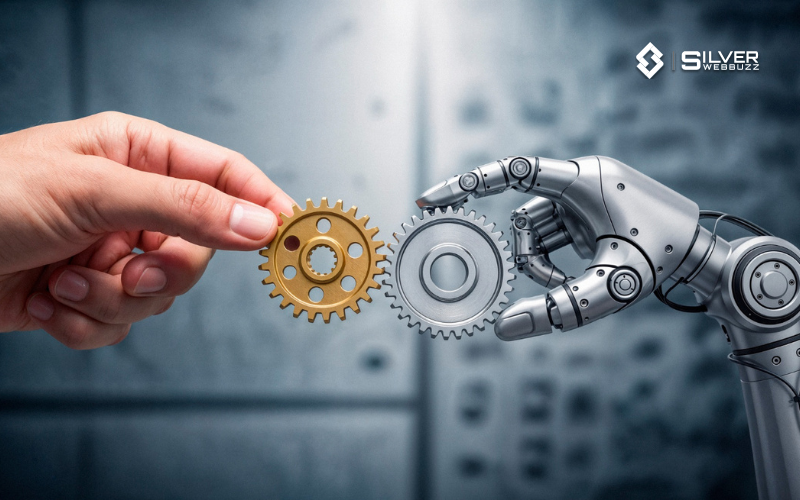
Generative AI in industries is driving large-scale transformation across multiple sectors, reshaping workflows, decision-making, and innovation cycles. From healthcare to finance, businesses are integrating AI applications that can design, predict, and generate insights in real time.
In manufacturing, Generative AI is optimizing production lines, predicting maintenance needs, and even generating new product designs with greater efficiency. In healthcare, it supports diagnostics, drug discovery, and patient care through data-driven precision. Meanwhile, financial institutions leverage AI models to assess risk, detect fraud, and deliver more personalized customer experiences.
The retail and e-commerce sectors use AI transformation tools to analyse consumer behaviour, recommend products, and personalize shopping experiences. In media and entertainment, AI-powered content creation tools enable studios and marketers to produce custom videos, visuals, and campaigns tailored to audience preferences.
These developments align with the broader shift toward Industry 4.0 AI, where smart factories, autonomous systems, and digital twins rely on Generative AI for continuous learning and process improvement. The technology enables organizations to simulate outcomes before implementing real-world changes — saving both time and resources.
By 2025, Generative AI will no longer be a niche innovation; it’s a foundational capability accelerating growth and competitiveness across virtually every industry. Companies that embrace this transformation are gaining a measurable advantage through faster innovation, smarter automation, and data-driven creativity.
Healthcare Revolution: AI-Driven Diagnostics, Drug Discovery, and Patient Care

Generative AI in healthcare is transforming how medical professionals diagnose, treat, and care for patients. By analyzing vast datasets and generating predictive insights, AI systems help detect diseases earlier, design new drugs faster, and personalize treatment plans with unprecedented accuracy.
In AI diagnostics, machine learning models trained on medical images can identify conditions like cancer, heart disease, and neurological disorders far earlier than conventional methods. Generative models go beyond detection — they simulate possible disease progressions, enabling doctors to make proactive care decisions.
When it comes to AI drug discovery, pharmaceutical companies are using Generative AI to design new molecules, predict chemical reactions, and optimize clinical trials. This shortens the drug development timeline from years to months. For example, DeepMind’s AlphaFold has revolutionized protein structure prediction, accelerating biomedical innovation worldwide.
Generative AI also enhances healthcare AI solutions focused on patient care. Chatbots and virtual assistants powered by natural language models provide 24/7 support, while predictive analytics tools suggest personalized therapies based on each patient’s history and genetics.
According to a 2024 World Health Organization analysis, AI-driven diagnostics and automation could save healthcare systems billions annually by improving accuracy and operational efficiency. As the technology matures, Generative AI is enabling a shift from reactive treatment to proactive, personalized care — redefining modern healthcare.
Manufacturing and Automation: How Generative AI Boosts Efficiency and Innovation
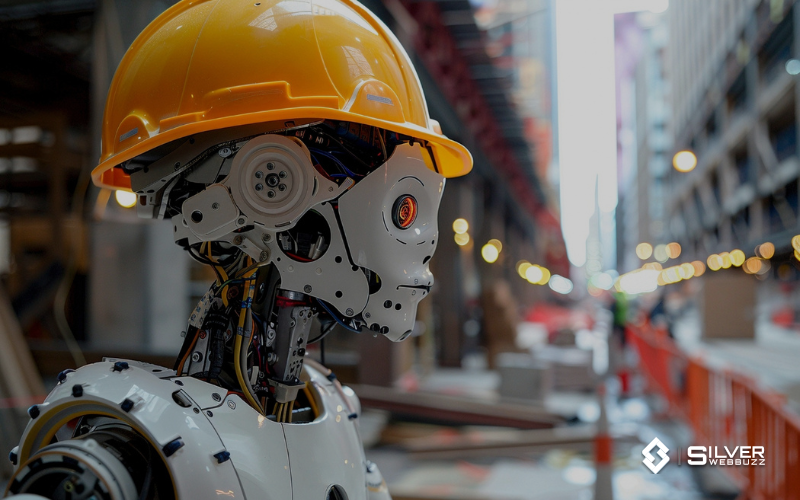
The rise of AI in manufacturing is redefining how products are designed, produced, and delivered. Generative AI enables manufacturers to innovate faster, reduce costs, and achieve greater precision through automation and predictive intelligence.
One of the most impactful applications is AI automation, where generative models help design optimized production layouts, simulate workflows, and forecast maintenance requirements. By analyzing sensor data, these models predict equipment failures before they occur — minimizing downtime and improving productivity.
In product design, Generative AI systems can automatically generate prototypes based on specific parameters like material type, cost, and performance goals. Engineers then evaluate and refine these AI-generated designs to develop stronger, lighter, and more efficient products. This approach significantly shortens time-to-market and enhances innovation cycles.
The concept of industrial AI is also central to the emergence of smart factories 2025, where interconnected machines, robotics, and digital twins collaborate seamlessly. These systems learn continuously from real-time data, allowing manufacturers to adjust operations dynamically and meet changing customer demands.
According to Deloitte Insights, AI-driven manufacturing could increase global industrial productivity by up to 20% by 2030, making Generative AI a core enabler of the next industrial revolution. From design optimization to predictive maintenance, Generative AI is not just enhancing efficiency — it’s transforming how modern industries build and scale innovation.
Financial Services Transformation: Risk Analysis, Fraud Detection, and Personalized Banking

Generative AI in finance is revolutionizing the way banks, fintech firms, and financial institutions manage data, detect threats, and deliver customer experiences. With the ability to analyze complex patterns and generate predictive insights, AI has become a critical tool for improving security, accuracy, and personalization across financial services.
In AI risk management, financial organizations leverage generative models to simulate market behavior, assess credit risk, and optimize portfolio strategies. These models analyze millions of data points — from transaction histories to global market trends — allowing institutions to make faster, more informed decisions.
Fraud detection is another area where fintech AI solutions excel. Generative AI systems can create synthetic transaction data to train fraud-detection algorithms, helping them recognize suspicious patterns before real-world losses occur. This proactive approach strengthens compliance and reduces false positives that often disrupt legitimate transactions.
In AI in banking, customer engagement is being transformed through personalized financial services. AI-powered chatbots and digital advisors now offer tailored product recommendations, automate routine transactions, and provide real-time financial guidance — enhancing user experience while reducing operational costs.
A World FinTech Report 2024 noted that nearly 70% of financial institutions are investing in Generative AI to improve decision-making and compliance efficiency. By integrating AI into their core systems, the financial sector is achieving greater transparency, faster innovation, and a higher degree of customer trust. Generative AI is no longer a supportive tool — it’s a strategic advantage in the evolving world of digital finance.
Retail and E-Commerce: Enhancing Customer Experience with AI-Generated Insights

The adoption of AI in retail is redefining how brands understand customers, manage operations, and deliver personalized shopping experiences. In 2025, Generative AI is helping retailers predict trends, optimize inventory, and design marketing campaigns tailored to individual preferences.
Through advanced data modeling, e-commerce AI tools analyze browsing patterns, purchase history, and sentiment data to predict what consumers are most likely to buy next. Retailers then use these insights to personalize recommendations, improving conversion rates and customer satisfaction.
AI-generated product descriptions, visuals, and pricing suggestions are now common, enabling faster product launches and consistent branding. These innovations reduce the time needed for content creation while maintaining accuracy and tone across all digital platforms.
Personalized shopping AI takes customization even further. With real-time data, Generative AI can simulate buyer journeys, identify drop-off points, and optimize the online experience for every customer segment. This leads to higher engagement and stronger brand loyalty.
Retailers also rely on AI customer insights to manage supply chains more efficiently — predicting demand fluctuations, minimizing overstocking, and reducing waste. As a result, operations become more cost-effective and sustainable.
A Gartner 2025 report highlights that retail companies using Generative AI for personalization and forecasting are achieving up to 25% higher customer retention compared to competitors. From product discovery to post-purchase support, Generative AI is making retail smarter, faster, and more human-centric than ever before.
Media, Entertainment, and Marketing: AI in Content Creation and Personalization
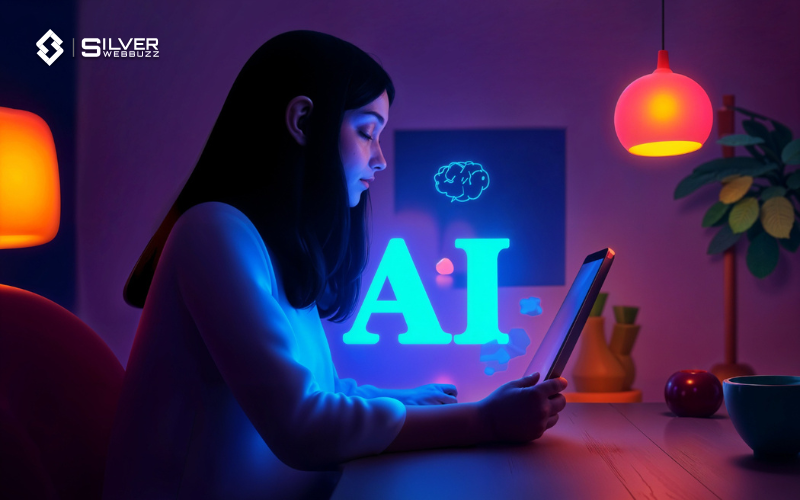
The integration of Generative AI in media and entertainment is transforming how content is created, distributed, and personalized. From automated video generation to dynamic marketing campaigns, AI is helping creators and brands produce more engaging and targeted experiences.
In AI content creation, generative models can write scripts, design visuals, compose music, and even edit videos based on audience preferences. Studios and content agencies now rely on these tools to scale production while maintaining creativity and consistency across platforms.
Marketers are using marketing AI tools to generate ad copy, visuals, and audience-specific campaigns that adapt in real time. These tools analyze user behavior, social engagement, and conversion data to continuously optimize campaigns for maximum impact. The result is hyper-personalized marketing that delivers higher ROI and brand engagement.
AI-powered personalization engines are also reshaping streaming platforms, news outlets, and entertainment apps. By analyzing user habits and interests, AI personalization systems recommend content that fits each individual’s taste — driving longer engagement times and stronger brand loyalty.
According to PwC’s Global Entertainment & Media Outlook 2025, organizations that adopt Generative AI in their creative workflows can reduce production costs by up to 30% while doubling content output. In an era where attention spans are short and competition is fierce, Generative AI enables creators and marketers to stay agile, innovative, and customer-focused.
Education and E-Learning: Personalized Learning and AI-Generated Educational Content

The adoption of AI in education is reshaping how students learn, teachers instruct, and institutions manage academic delivery. Generative AI enables schools, universities, and online learning platforms to create adaptive, data-driven, and highly personalized learning experiences.
Through e-learning AI systems, educators can design dynamic courses that adjust to a learner’s pace, performance, and interests. AI analyzes engagement data and assessment results to suggest tailored lessons, practice exercises, and additional resources that match each student’s learning style.
Generative AI also accelerates content creation in education. Teachers and course designers use it to automatically generate quizzes, study materials, and interactive modules — freeing up time for more meaningful student interaction. For learners, this results in faster access to accurate, up-to-date educational content.
AI tutoring platforms powered by natural language models now offer real-time feedback and one-on-one support across subjects. These virtual tutors explain complex concepts, identify weaknesses, and recommend personalized study plans — making education more accessible and inclusive.
In higher education, personalized education AI systems are supporting institutions with data-driven decision-making, helping them improve retention rates and curriculum effectiveness. As learning becomes more digital, Generative AI ensures that personalization and scalability go hand in hand.
According to HolonIQ’s 2025 Global Education Report, the global AI-in-education market is projected to exceed $25 billion by 2026, driven by demand for personalized and automated learning experiences. Generative AI is not just enhancing education — it’s redefining how knowledge is created, delivered, and retained.
Challenges in Implementing Generative AI: Ethics, Data Privacy, and Security Concerns
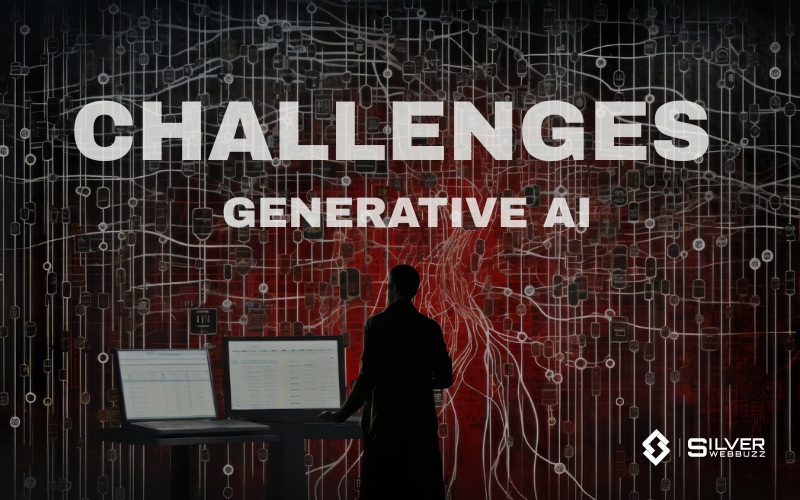
While the potential of Generative AI is vast, its implementation presents serious Generative AI challenges that businesses and regulators must address. As organizations adopt AI at scale, concerns around AI ethics, data privacy, and AI security are becoming central to sustainable development.
One of the major ethical concerns is bias in AI-generated outputs. Since generative models learn from existing datasets, they may reproduce or amplify societal biases present in the data. This can lead to unfair decisions in sectors like recruitment, finance, and healthcare, raising questions about accountability and transparency.
Data privacy AI issues also pose a significant risk. Generative models often require access to large datasets, some of which may contain sensitive personal or corporate information. Without proper safeguards, there is a risk of unintentional data leaks or misuse. Global regulations such as GDPR and upcoming AI-specific frameworks are pushing organizations to strengthen compliance and ethical oversight.
From a security perspective, AI security threats are growing rapidly. Cybercriminals can misuse generative models to create deepfakes, synthetic identities, or malicious code — challenging traditional cybersecurity defenses. Organizations must invest in robust monitoring, AI auditing, and digital watermarking to mitigate these risks.
According to Gartner’s AI Risk Report 2025, more than 40% of companies adopting Generative AI cite ethical and privacy issues as their primary implementation barrier. Addressing these challenges requires not only technological solutions but also clear governance frameworks and responsible innovation practices. Only by prioritizing trust and transparency can Generative AI deliver its full potential responsibly.
Future Trends: Generative AI
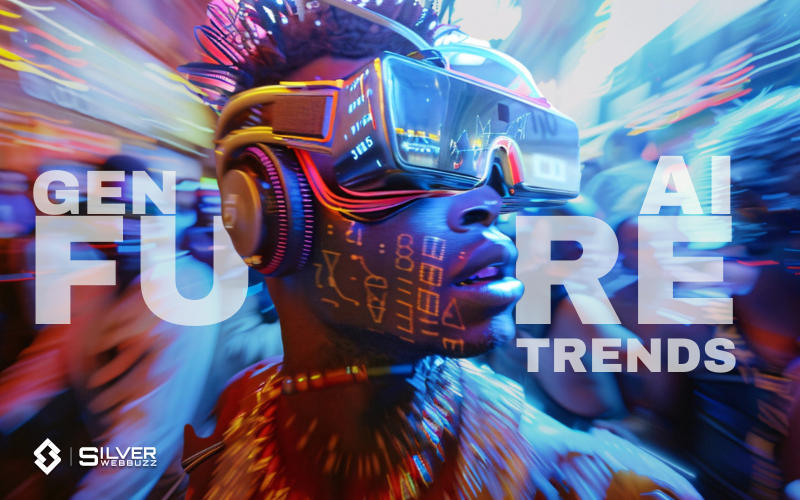
The future of Generative AI is evolving faster than ever, with breakthroughs expected to redefine industries, creativity, and human-machine collaboration. As models become more advanced and energy-efficient, 2025 marks a pivotal year for scaling Generative AI from experimentation to enterprise-wide adoption.
One of the most promising AI trends 2025 is multimodal AI — systems that can understand and generate text, images, audio, and video simultaneously. These models will power more immersive experiences in sectors like marketing, design, and virtual reality, enabling seamless integration between creative and analytical tasks.
AI innovation is also accelerating in autonomous systems and robotics. Generative models are helping machines plan complex operations, simulate outcomes, and adapt in real time. This will enhance efficiency in logistics, smart manufacturing, and autonomous mobility.
Emerging AI technologies like synthetic data generation are addressing one of AI’s biggest limitations — the need for high-quality, diverse training data. By producing realistic, privacy-safe datasets, Generative AI is enabling faster model training while reducing dependence on real-world data collection.
In 2025 and beyond, AI will also play a greater role in sustainability. Generative AI is being used to model environmental systems, optimize energy consumption, and design low-carbon materials for industries transitioning to green operations.
According to McKinsey’s 2025 State of AI Report, over 60% of organizations plan to increase investments in Generative AI over the next two years, focusing on innovation, efficiency, and customer engagement. The next wave of Generative AI will not only expand capabilities but also redefine what collaboration between humans and machines truly means — intelligent, creative, and ethical.
How Businesses Can Strategically Adopt Generative AI for Competitive Advantage
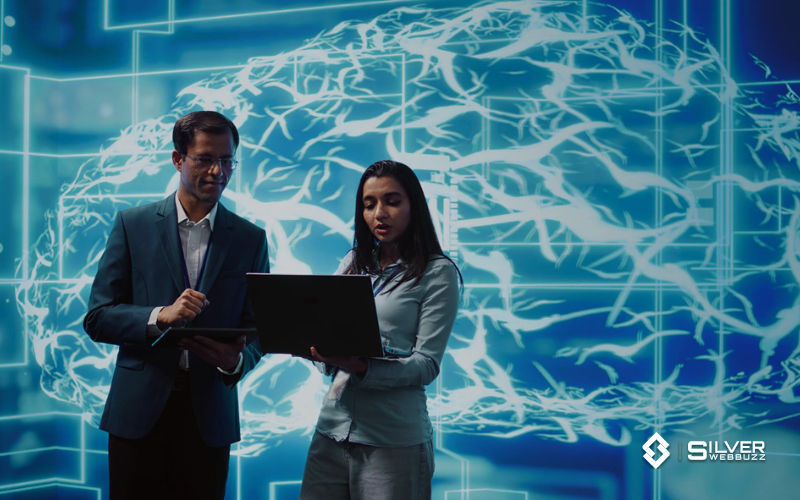
Strategic Generative AI adoption enables organizations to unlock innovation, improve operational efficiency, and gain a competitive edge. Companies that integrate AI thoughtfully can leverage AI business strategy to optimize processes, enhance products, and create superior customer experiences.
The first step is identifying high-impact areas where AI can deliver measurable results. Examples include automating repetitive tasks, generating creative content, enhancing decision-making, or predicting market trends. By aligning AI initiatives with core business objectives, organizations can ensure that investments drive tangible value.
AI implementation should follow a structured approach. Start with pilot projects to test models on smaller datasets and validate performance. Next, integrate AI solutions into existing workflows while training teams to interact effectively with AI systems. Monitoring outcomes, refining models, and scaling successful applications ensures sustainable adoption.
Organizations should also consider AI for growth by fostering a culture of innovation. Encouraging collaboration between AI specialists, domain experts, and decision-makers allows businesses to co-create solutions that are both technically robust and strategically relevant. Additionally, ethical and transparent AI practices build trust with customers, regulators, and stakeholders.
According to Forbes Technology Council, companies that successfully adopt Generative AI can achieve 20–30% higher productivity and faster innovation cycles compared to competitors. Strategic adoption is not just about deploying technology; it’s about embedding AI into the business DNA to drive long-term growth and market leadership.
Conclusion: The Long-Term Impact of Generative AI Across Industries
The impact of Generative AI across industries is profound, reshaping how businesses operate, innovate, and interact with customers. From healthcare and finance to retail, media, and education, organizations are leveraging AI to enhance efficiency, personalize experiences, and drive data-informed decisions.
Generative AI is no longer a future concept — it has become a strategic necessity. Businesses that adopt these technologies through Generative AI Development Services can gain a measurable advantage by automating processes, accelerating innovation, and creating highly personalized solutions for clients and customers.
While challenges such as ethics, data privacy, and security remain, responsible and strategic implementation ensures that the benefits far outweigh the risks. By embracing AI-driven transformation, companies can position themselves for long-term growth, competitive differentiation, and sustainable success.
As 2025 unfolds, Generative AI continues to expand its influence across industries. Its capacity to augment human creativity, intelligence, and operational capability ensures that businesses investing in this technology today will shape the digital economy of tomorrow.
